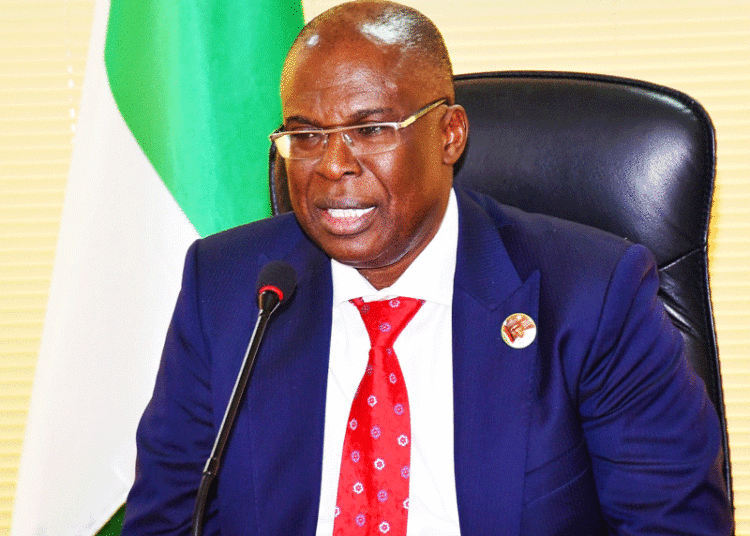Minister of state for petroleum resources, Timipre Sylva, has expressed worries over the possibility of meeting target delivery of renewable energy by 2050.
According Sylva, world leaders should consider energy mix as capable of delivering energy demand exponential population rise in Africa and Asia.
Anticipated economic growth and rising global population, especially in Asia and Africa, will significantly push energy demand upward to a level that renewable energy sources only cannot meet by 2050, he said.
The minister therefore called for the deployment of available technologies to make fossil fuel cleaner in the face of global energy transition.
Sylva made the call while speaking at the 2022 Society of Petroleum Engineers (SPE) Nigeria Annual International Conference and Exhibition (NAICE) on Monday in Lagos.
The conference had as its theme: “Global Transition to Renewable and Sustainable Energy and the Future of Oil and Gas in Africa.”
He said the theme of the conference was very apt, coming at a time when the world was witnessing a turnaround in the global energy landscape and clamouring for transition to greener energy sources to reduce carbon emission.
The minister, however, maintained that energy transition was better viewed as providing clean energy, and not as abandoning some energy sources.
According to him, the ongoing global energy is a huge challenge to the reliability and sustainability of renewable energy supplies as alternatives to fossil fuels.
“All these imply that the global energy mix will remain with us, amidst greater dominance by hydrocarbon energy sources, at least in the foreseeable future.
“It also indicates that energy transition will remain a gradual process, as against a rapid and radical shift as some have presented it.
“It is, therefore, necessary that more effort should be put on the use of available technologies like the Carbon Capture, Utilisation and Storage (CCUS), to make fossil fuels cleaner.
“This will encourage a win-win situation in terms of CO2 emission reduction and meeting global energy demand,” he said.
Many countries, he said, have already come to the realisation that the adoption and deployment of the CCUS technologies in large scale will play a critical role in supporting energy transitions globally.
He said that investment into the CCUS technologies was a very appropriate step at this stage of addressing climate change concerns.
The minister, who noted that Africa was bedeviled with energy poverty, advised African countries to adopt adaptive strategies taking into account the different socio-economic, political and developmental peculiarities of individual nations.
He said: “Africa’s energy poverty would have to be addressed by responsibly developing and utilising Africa’s abundant natural resource fossil fuels, from where the renewable energy would be funded amidst a gradual energy transition.
“Nigeria, as the oil and gas industry leader in Africa, is committed to pursuing the energy transition to promote economic growth.”
Sylva said the country was gradually investing in renewable energies, primarily solar, to reduce carbon emissions, whilst continuing to exploit hydrocarbon resources, especially natural gas recognised as the energy transition fuel for Nigeria.
2022 SPE International president, Mr Kamel Ben-Naceur blamed the current global energy crisis on the sharp decline in investment in the upstream petroleum sector in pursuit of energy transition.
Ben-Naceur said with the return to normalcy after the COVID-19 pandemic and the ongoing tension in Eastern Europe had driven the price of petroleum products very high leading to inflation in many countries.
He said projections had shown that oil and gas would continue to be a significant part of the energy mix in the foreseeable future hence there was need to increase investment in the industry.





